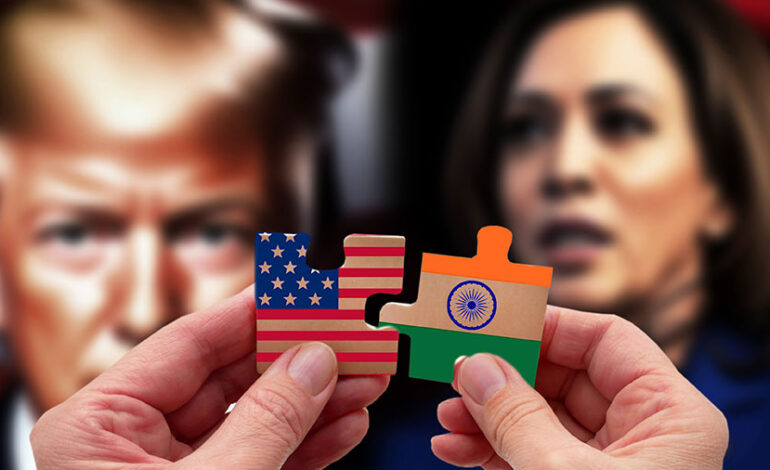
The 2024 U.S. presidential election—its impact on Indo-U.S. relations
By: Avi Verma MD(h)
The 2024 U.S. presidential election may be one of the most consequential in American history, especially in its foreign policy implications for India. Kamala Harris and Donald Trump represent divergent paths for the U.S. on the global stage, and each has unique bearings on Indo-U.S. relations, which have become increasingly vital in light of strategic interests in the Indo-Pacific and the global technology landscape.
Both Democrats and Republicans now view India as a crucial partner for maintaining balance in the Indo-Pacific region against China’s growing influence. This bipartisan alignment reflects India’s importance in U.S. foreign policy—particularly as a defense ally and a technology collaborator. Under Trump’s prior administration, the focus was on strengthening defense ties, promoting economic trade, and fostering the Quad alliance, which aligns with India’s regional priorities. Trump’s approach may continue to be pragmatic, emphasizing economic and strategic defense without extensive interference in India’s internal policies, allowing India more autonomy while securing U.S. interests in Asia.
Kamala Harris, if elected, is likely to continue building on existing frameworks while placing a strong emphasis on democratic values and human rights, as demonstrated by her recent positions on domestic issues within India. However, Harris’s approach to multilateral partnerships and her ties to South Asia may enhance India’s standing in global arenas, including the G20 and the United Nations. Although there may be challenges around domestic policies, her administration would likely prioritize collaborative defense, climate, and energy goals aligned with India’s objectives on the world stage.
An essential element of recent U.S.-India relations has been the 2023 launch of the Initiative on Critical and Emerging Technology (iCET), a testament to both countries’ focus on key sectors like artificial intelligence, biotechnology, and clean energy. This initiative reflects a commitment by both nations to foster deeper strategic cooperation in technology—a step that could shape global tech policies in significant ways. Regularized high-level engagements have become a platform for India and the U.S. to not only advance their mutual defense goals but to lead in the fields that are defining this century’s economic and technological landscape.
As we await the outcome of this election, it is clear that both Trump and Harris view India as essential to U.S. interests in defense, economics, and technology. The IndoUS Tribune will follow the developments closely and analyze the incoming administration’s impact on our community and the U.S.-India relationship. This election will define the future of this critical alliance, and with it, the potential for India and the United States to jointly shape a more secure and prosperous global landscape.